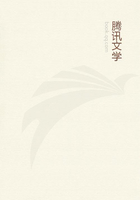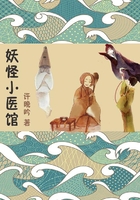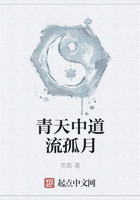The Senators are elected for six years, but the same Senate does not sit entire throughout that term. The whole chamber is divided into three equal portions or classes, and a portion goes out at the end of every second year; so that a third of the Senate comes in afresh with every new House of Representatives. The Vice-President of the United States, who is elected with the President, and who is not a Senator by election from any State, is the ex-officio President of the Senate. Should the President of the United States vacate his seat by death or otherwise, the Vice-President becomes President of the United States; and in such case the Senate elects its own President pro tempore.
In speaking of the Senate, I must point out a matter to which the Constitution does not allude, but which is of the gravest moment in the political fabric of the nation. Each State sends two Senators to Congress. These two are sent altogether independently of the population which they represent, or of the number of members which the same State supplies to the Lower House. When the Constitution was framed, Delaware was to send one member to the House of Representatives, and Pennsylvania eight; nevertheless, each of these States sent two Senators. It would seem strange that a young people, commencing business as a nation on a basis intended to be democratic, should consent to a system so directly at variance with the theory of popular representation. It reminds one of the old days when Yorkshire returned two members, and Rutlandshire two also.
And the discrepancy has greatly increased as young States have been added to the Union, while the old States have increased in population. New York, with a population of about 4,000,000, and with thirty-three members in the House of Representatives, sends two Senators to Congress. The new State of Oregon, with a population of 50,000 or 60,000, and with one member in the House of Representatives, sends also two Senators to Congress. But though it would seem that in such a distribution of legislative power the young nation was determined to preserve some of the old fantastic traditions of the mother country which it had just repudiated, the fact, I believe, is that this system, apparently so opposed to all democratic tendencies, was produced and specially insisted upon by democracy itself. Where would be the State sovereignty and individual existence of Rhode Island and Delaware, unless they could maintain, in at least one House of Congress, their State equality with that of all other States in the Union? In those early days, when the Constitution was being framed, there was nothing to force the small States into a union with those whose populations preponderated. Each State was sovereign in its municipal system, having preserved the boundaries of the old colony, together with the liberties and laws given to it under its old colonial charter. Aunion might be and no doubt was desirable; but it was to be a union of sovereign States, each retaining equal privileges in that union, and not a fusion of the different populations into one homogeneous whole. No State was willing to abandon its own individuality, and least of all were the small States willing to do so. It was, therefore, ordained that the House of Representatives should represent the people, and that the Senate should represent the States.
From that day to the present time the arrangement of which I am speaking has enabled the Democratic or Southern party to contend at a great advantage with the Republicans of the North. When the Constitution was founded, the seven Northern States--I call those Northern which are now free-soil States, and those Southern in which the institution of slavery now prevails--were held to be entitled by their population to send thirty-five members to the House of Representatives, and they sent fourteen members to the Senate. The six Southern States were entitled to thirty members in the Lower House, and to twelve Senators. Thus the proportion was about equal for the North and South. But now--or rather in 1860, when secession commenced--the Northern States, owing to the increase of population in the North, sent one hundred and fifty Representatives to Congress, having nineteen States, and thirty-eight Senators; whereas the South, with fifteen States and thirty Senators, was entitled by its population to only ninety Representatives, although by a special rule in its favor, which I will presently explain, it was in fact allowed a greater number of Representatives, in proportion to its population, than the North. Had an equal balance been preserved, the South, with its ninety Representatives in the Lower House, would have but twenty-three Senators, instead of thirty, in the Upper.*But these numbers indicate to us the recovery of political influence in the North, rather than the pride of the power of the South; for the South, in its palmy days, had much more in its favor than I have above described as its position in 1860. Kansas had then just become a free-soil State, after a terrible struggle, and shortly previous to that Oregon and Minnesota, also free States, had been added to the Union. Up to that date the slave States sent thirty Senators to Congress, and the free States only thirty-two. In addition to this, when Texas was annexed and converted into a State, a clause was inserted into the act giving authority for the future subdivision of that State into four different States as its population should increase, thereby enabling the South to add Senators to its own party from time to time, as the Northern States might increase in number.
* It is worthy of note that the new Northern and Western States have been brought into the Union by natural increase and the spread of population. But this has not been so with the new Southern States.
Louisiana and Florida were purchased, and Texas was--annexed.















